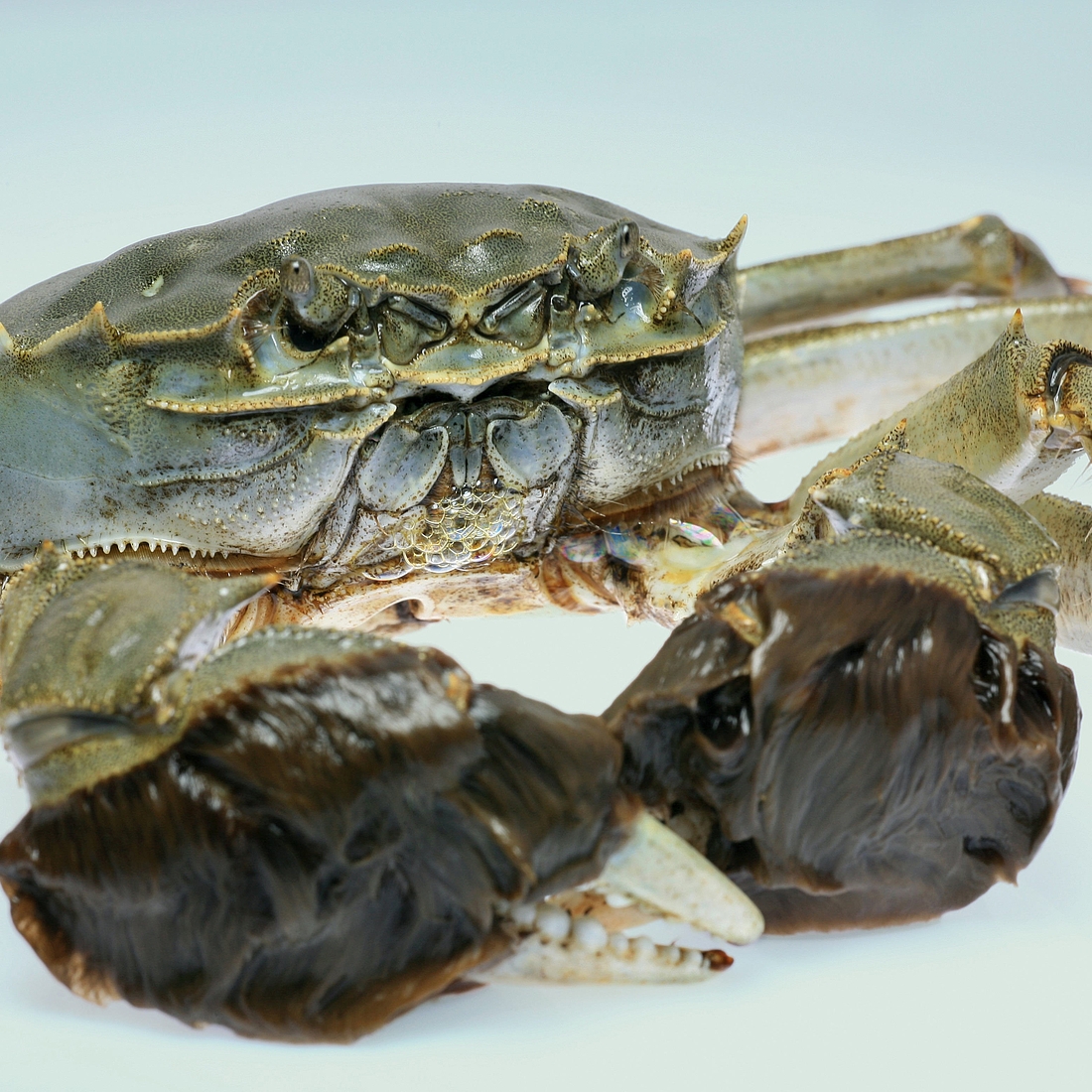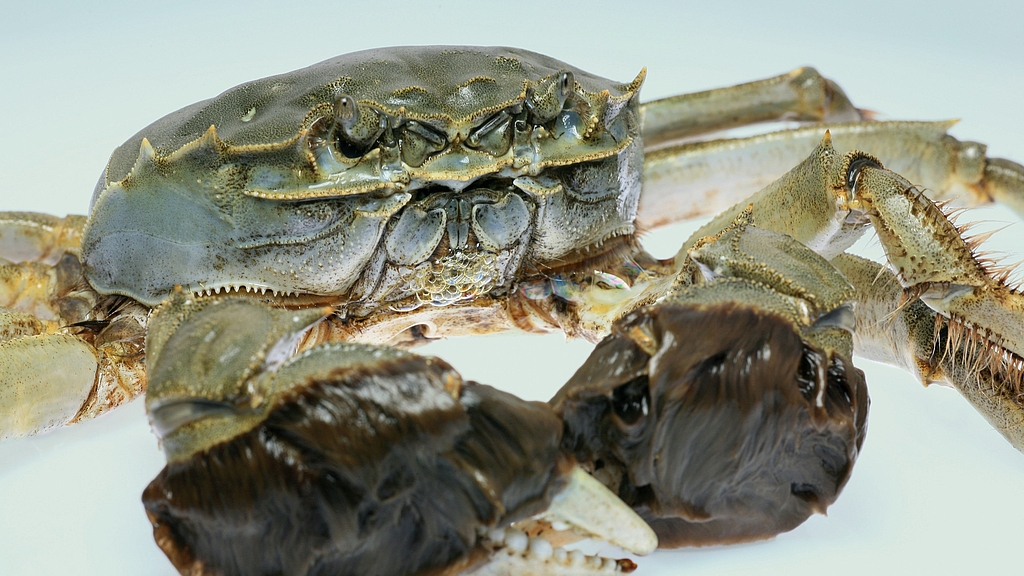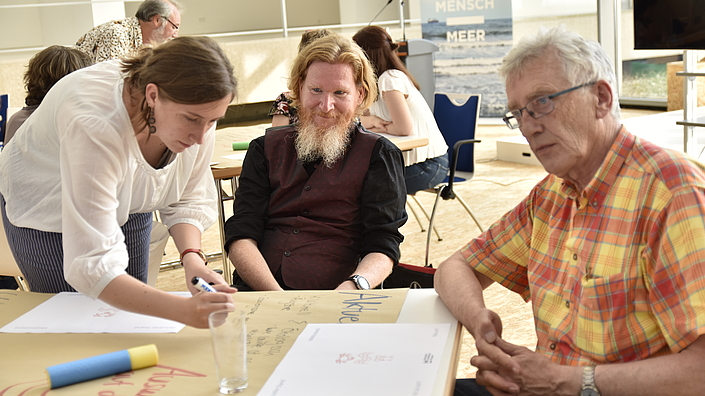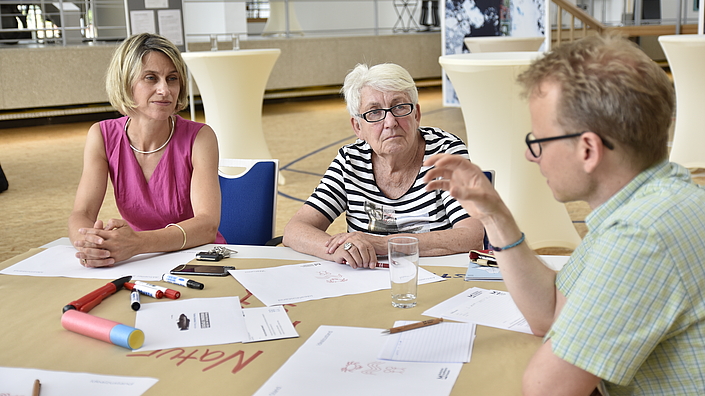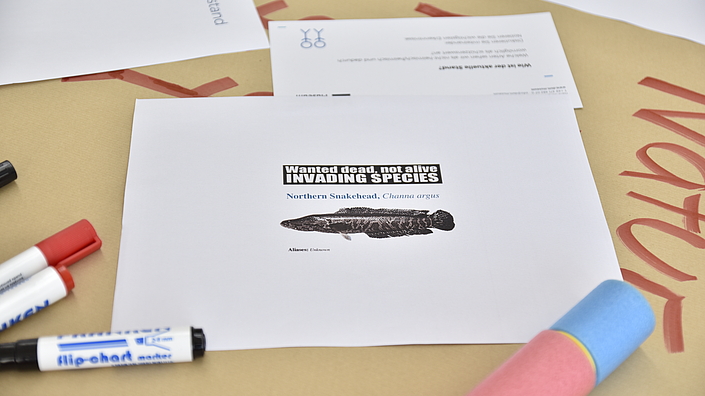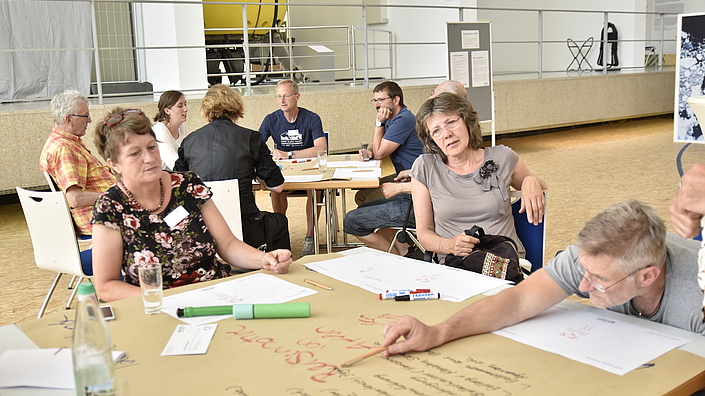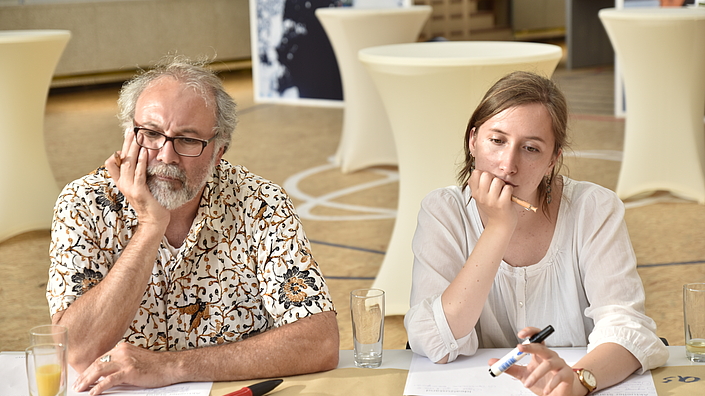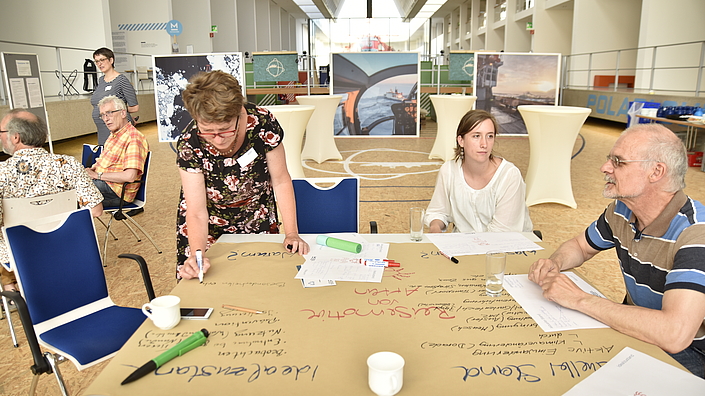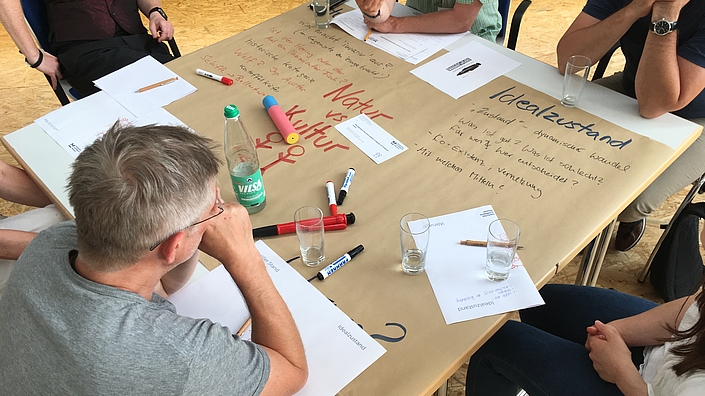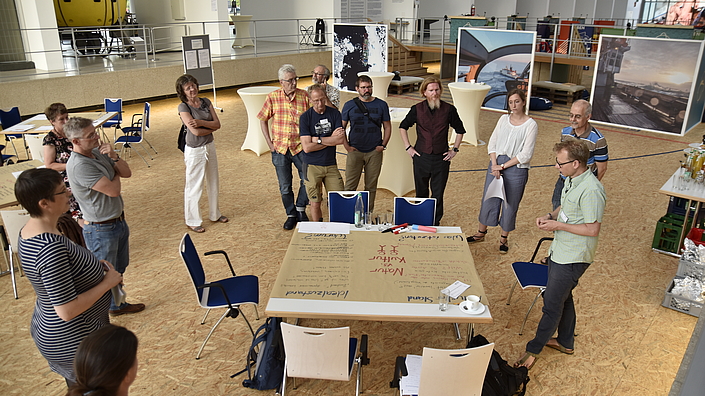Species on the move: Is there anything wrong with nature?
The Chinese mitten crab, the Pacific rock oyster and the predatory fish Snakehead have one thing in common. They are introduced species that have settled in new regions by different routes.
But when are introduced species unwanted and when are they perhaps even welcome? Ecosystems change and rearrange themselves - and humans are part of it. In an interactive exchange with experts* you will learn about the causes and effects on biodiversity. We invite you to discuss with all participants when species are considered worthy of protection and to what extent we ourselves are involved in the history of nature. We have invited experts from the fields of biology, politics, nature conservation and philosophy.
World Café
In the workshop phase you will discuss different aspects of the topic at different tables with one expert* each. At the tables you will record your thoughts and ideas on the tablecloth. After 15 to 20 minutes you move on to the next table. The expert remains at the table as host and informs the next group about the status of the discussion. At the end we all bring the results of the topic tables together and discuss in the group.
Experts
Dr. Sven Bergmann - Maritime and Environmental Anthropologist, German Maritime Museum
Dr. Katja Broeg - Marine biologist and ecotoxicologist, Bundesamt für Seeschifffahrt und Hydrographie
Dr. Christian Buschbaum - Marine Ecologist, Alfred Wegener Institut, Helmholtz-Zentrum für Polar- und Meeresforschung (Wattenmeerstation Sylt)
Contact
More information
The experts
-Dr. Sven Bergmann

What does biodiversity mean to you?
Diversity and difference are central concepts in the social and cultural sciences. Just as the modern and western separation of nature and culture is increasingly eroding, biodiversity has emerged as a concept that transcends the boundaries of disciplines. As a cultural anthropologist, however, I often lack an understanding of the relationships and connections between 'species' in the debate.
Why does your research concern society and each individual?
Research in the field of political ecology is interested in the borderline relationships between nature and culture. We as humans determine nature with our actions. Therefore, it makes a difference to look at the world from a perspective of hybridity or a perspective of 'purity' - and it has far-reaching political consequences for the way we deal with our own and the foreign.
What has been the most surprising finding in your research career to this point?
Being open to surprise is always a good guiding principle for scientific research. In the border area of cultures of natures, I am always surprised how discourses in supposedly 'separate' fields resemble each other, how metaphors, symbolisms and stereotypes are used for transdisciplinary arguments.
What do your research results have to do with our everyday actions?
All actions, prohibitions and guidelines that we strive for with good intentions can always be to the disadvantage of others. The protection of one 'species', for example, can mean danger for another - these connections should always be reflected upon as far as possible.
Dr. Katja Broeg

What does biodiversity mean to you?
Diversity of life forms and species, uniquely coordinated everywhere and adapted to their respective environmental conditions.
Why does your research concern society and every individual?
The basis of our existence is that we manage to harmonize our needs with those of our environment. This is what I research and work for.
What has been the most surprising finding in your research career so far?
That over such a long period of time mankind was able to disconnect from the laws of nature without understanding that it can't go on like this forever. For example, to synthesize substances that completely escape degradation without realizing that the natural cycle is the only way to sustainably inhabit our limited space Earth.
What do your research results have to do with our everyday actions?
That you can once again bathe with your children and grandchildren in the Elbe without having to worry about poisoning yourself in the receiving waters
Dr. Christian Buschbaum

What does biodiversity mean to you?
For me, biodiversity means habitat diversity as well as species diversity. This also includes the variety of interactions between organisms and their interactions with the habitat in which they occur. Many of these interactions are also essential for our society. One example is the important function of insects as flower pollinators. Biodiversity is therefore also the basis of life for us humans.
Why does your research concern society and every individual?
One of my research focuses on species introduced into coastal seas. These habitats are currently changing rapidly. They are changing so fast that we can hardly study, record and document the changes. These changes will increasingly affect the lives of people living on the coast, but also far away from the oceans, whether it be sea-level rise, the use of natural resources such as food from the sea, or the function of the coast for recreation and tourism.
What has been the most surprising finding in your research career to date?
With regard to introduced species, I found it astonishing to see how well native species cooperate with the immigrants and what mutual benefits both can have from each other. We could learn from this insight in human coexistence.
What do your research results have to do with our everyday life?
Our environment is changing rapidly not only in the sea, but also on land, and many of these changes are man-made. These changes need to be illustrated in order to rebuild a greater sensitivity towards our environment. Only then will we not only talk about necessary protection efforts and changed behaviour, but also live them.

